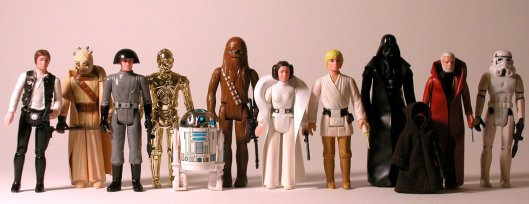Tags
#death, #dementia, #divorce, #fatherhood, #moving, #relationships, #writing
“The things you own end up owning you. It’s only after you lose everything that you’re free to do anything.” ― Chuck Palahniuk, Fight Club
Summer 2013
I started throwing stuff out or giving it away that same month. Twelve years of National Geographic, weighing a conservative 150lbs, reminded me of all of the unread magazines I’d tossed from my parent’s basement. I’d stopped my subscription years earlier, telling myself that I would re-subscribe once I’d caught up with the back issues. I admitted that wasn’t going to happen, any more than my father had ever caught up on the thousands of back issues he’d stored. I lifted the magazines into the recycling bin, letting go of both the yellow framed covers and my obligations. I remember feeling lighter the moment my stuff started taking up less space in the world.

I’m still sorting through our stuff – I can’t easily toss things I know others would appreciate. Bringing it back around to Graham Hill’s article, I understand what he is describing when he says “Somehow this stuff ended up running my life, or a lot of it; the things I consumed ended up consuming me.” He’s essentially paraphrasing Chuck Palahniuk’s most famous quote, whether he realizes it or not. It is interesting that even though we came about our excesses differently, we had the same reaction to them, a feeling of being overwhelmed and committed to things that have little real value.
Even with fewer of his things around, my father remains with me, compelling me to do better, though my conversations with his ghost grow mellower as his death fades into the past. It’s been nearly ten years since that December night in the restaurant. The seventeen years I calculated then has already wound down to just seven before the first effects of frontotemporal dementia might begin their slow work on my mind. I wake most mornings and go through my checklist. Can I still remember my childhood? Do I remember what I did yesterday? Can I still do basic math? Can I still read? Did I lose some part of myself overnight? How would I even know what had gone?
I feel like the years of reliable thinking are too few, that there is still so much to teach my sons before they are either on their own or I forget the lessons that I want to pass on. I can’t control that outcome, but that bothers me less than it might have a few years ago. Letting go of my stuff has helped me practice letting go of trying to control everything. Each item released represents an acceptance of the impermanence of life. It helps me to remember again and again that most everything is beyond my control.
I can control how I chose to respond, instead of reacting. I can control where I’m putting my attention. Less clutter has shifted my perspective from “what is here?” to “what is over there?” From “what do I need” to “how little do I need.” I find I’m focused on having experiences instead of buying things. I’m finally writing instead of just describing myself as a writer.
I believe that having fewer things has made me a better father. Learning to let go has made it easier to deal with my teenage sons because I accept that I cannot control them. That no matter the lessons I successfully pass on, their most meaningful lessons will come through their own error or embarrassment or failure. I’m not trying to protect them from those lessons, I accept that it is out of my control. I’m trying to teach them how to respond, how to let go, and how to accept the things they cannot change.
Perhaps fewer possessions will make it easier for them to let go of me when I die. Everything I keep could easily become something that my sons will stare at decades in the future, wondering what it meant to me and what they are supposed to do with it. I don’t want the things I leave behind to be shadows of the man I’d been, boxes of baubles picked up along the way, old hobbies no longer pursued, or stuff I kept because it disappeared into a corner. Instead, I’m working to leave behind only those things that were important to me. More signal. Less noise.

I don’t know if that will make it any easier for my them to decide what to do with my things. I hope they’ll have no guilt as they sort through my possessions. At the least, it won’t take years of their lives. Ideally, there will be items that they’ll keep because it reminds them of a meaningful moment or is a shared passion. They’ll know which items to put in the fire with me to be returned to their base elements and which ones to keep for themselves, each with a narrative explaining its meaning to their children. If we are all lucky, I’ll have as much time as I need. If not, I figure there will be an unintended life lesson or two in the few boxes left under the stairs.
The End.



